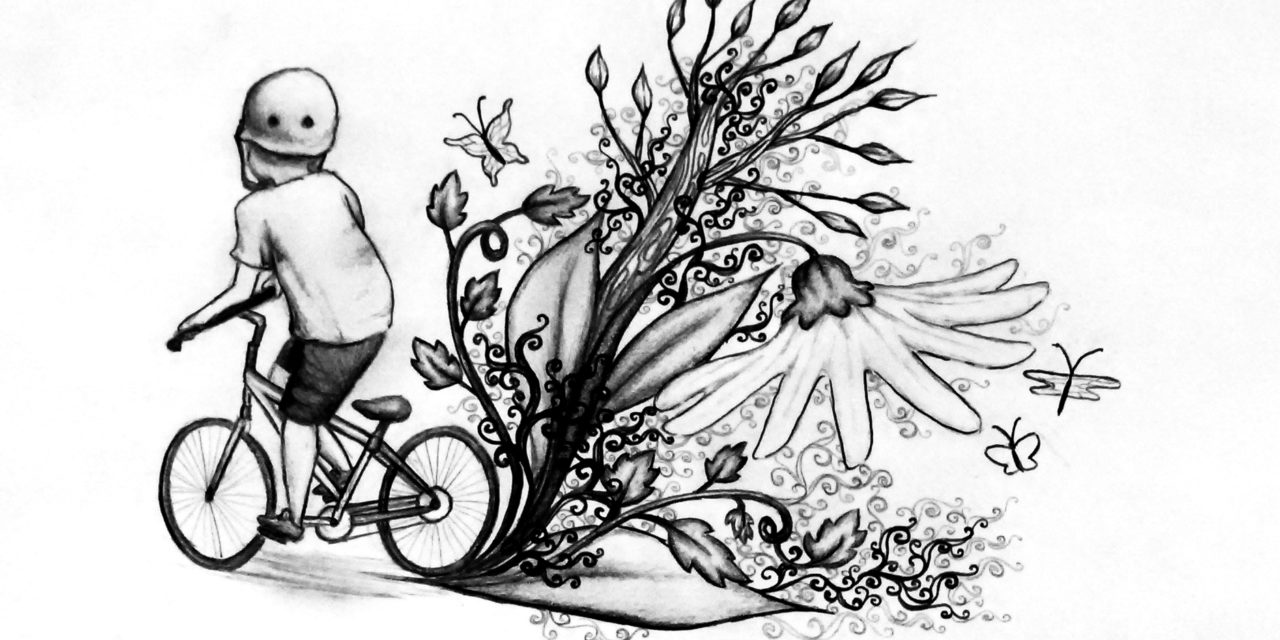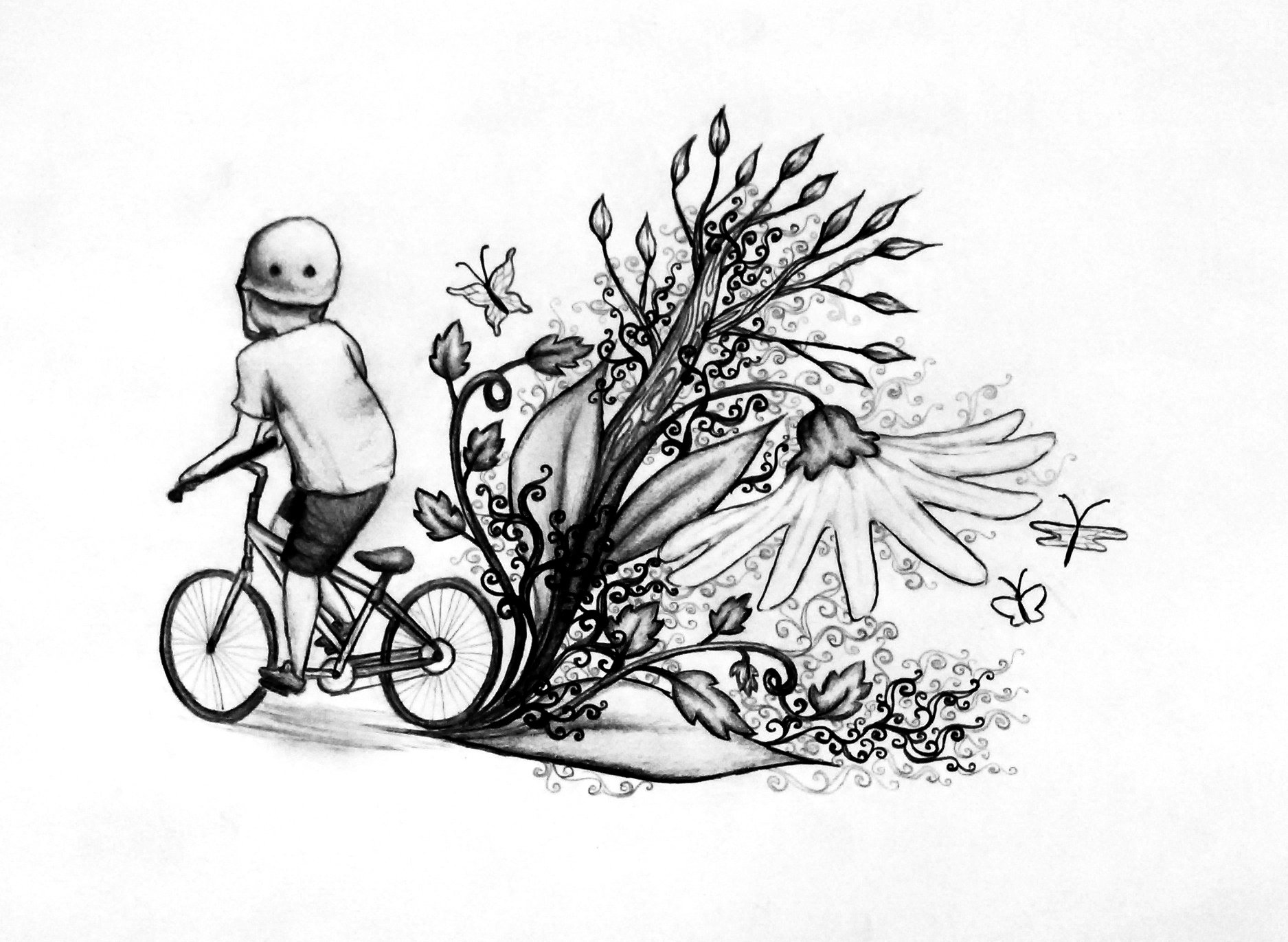I like to ride my bike. I ride my bike for leisure and exercise. But I also bike to go places around this campus. Biking is thus my practical means of transportation. In my “life-world” biking makes sense as a means of transportation. I have the necessary skills and tools for this inexpensive and effective means of transportation. Biking makes sense for me. In part I derive a certain sense of my identity as a bicyclist.
Many people in Atlanta drive a car as a practical means for transportation. This is not the case for me. While I do not own a car, I could borrow the use of a car from a friend or Zipcar if I wanted to. But driving simply does not make sense for me presently. Driving is relatively expensive and simply unnecessary within my present life-world. I fear, however, that driving will make sense for me one day. My life-world would only demand a car if something crazy happened to me, like if I had a child or a serious bike accident. These events would thus shape my identity; biking would no longer make sense for me. But as a biker in Atlanta, I am but a small minority.
Flying makes sense as a means of transportation for many people, myself included. I like to look out of the window whenever I fly in a plane. I would not be the first to muse about how people and cars appear so insignificant from such a perspective. But I think that the more profound cliché is comparing roads to veins from such an altitude. Indeed, one can see how Interstate 85 is truly Atlanta’s jugular upon departing Hartsfield-Jackson. The city’s plentiful roads make life in Atlanta as we know it possible. These roads give Atlanta its identity. So many people drive in Atlanta because driving in Atlanta makes sense for them. Atlanta’s roads manifest the life-world of Atlantans.
Most people don’t bike for practical purposes because they may get hurt or killed. On average two bicyclists die every day in this country, and only our Blessed Savior knows how many bicyclists are injured daily. Just kidding: helmets actually can’t know anything, because they are objects. Obviously bicyclists should always wear a helmet, but let’s not pretend that helmets actually make biking safe. American roads, and especially Atlanta roads, were simply not designed to include bicyclists.
Well, why weren’t Atlanta roads designed to include bicyclists? This is a question for another editorial, but in short, we can all agree that bicycling was apparently not deemed significant enough to include biking lanes. Atlanta’s absence of biking lanes has made driving cars make sense for many people. Exactly like how a people’s morality becomes objectified into particular laws, Atlanta’s streets are Atlantans’ objectified preference to drive. These roads, like our social norms and laws, thus shape our future means of transportation around Atlanta. We can now finally appreciate the “synthesis” of being between the city of Atlanta and her residents. People shape the world, and the world shapes people.
Biking burns calories, not our environment, and indeed it would be wonderful if people biked everywhere instead of driving. We would live in a very different world indeed! This world would be so different we can scarcely imagine it. It’s kind of like how Napoleon (supposedly) ordered his army to travel on the right side of the road, eventually institutionalizing a mere preference into tangible law.
But despite these grave and impending environmental concerns, I cannot even pretend that bicycling makes sense for most people. Biking is dangerous because we already live within a world designed for drivers.
Do you see it now? A people’s laws and cities do not just idly “represent” a culture, but this culture is literally objectified within our laws and streets. The next generation is thus left to make sense of their world. I fear that driving will continue to make sense for many people for quite some time. Many people know that their driving contributes to our deteriorating environment, and yet this realization is dwarfed by the far more pressing and tangible demands of their jobs and children. Again, we can hardly blame people for driving, because we were truly born into a world designed for drivers.
This country’s addiction to driving escapes an easy solution. Preventing everyone from driving cold-turkey is hardly feasible, for again, our world has already been institutionalized as a world for drivers. Completely redesigning this world for bicyclists or public transportation is similarly daunting. Not only would our society be responsible for completely restructuring our roads, but this process would similarly demand acquainting our society with a very different way of moving around this world than they are presently familiar with. In short, this restructuring will eventually demand a profound restructuring of our national identity.
The reconstruction of this identity is a large and daunting task. The reconstruction of this identity, like all identities, begins with perception. I encourage you to perceive how dangerous bicycling is for the cyclist. I hope that you will notice the absence of biking lanes within Atlanta. Learn to smell your own emission emanating from your car. These perceptual changes will perhaps allow us to realize how biking makes sense.
Christopher Rolling is a College senior from Milwaukee, Wisconsin.







